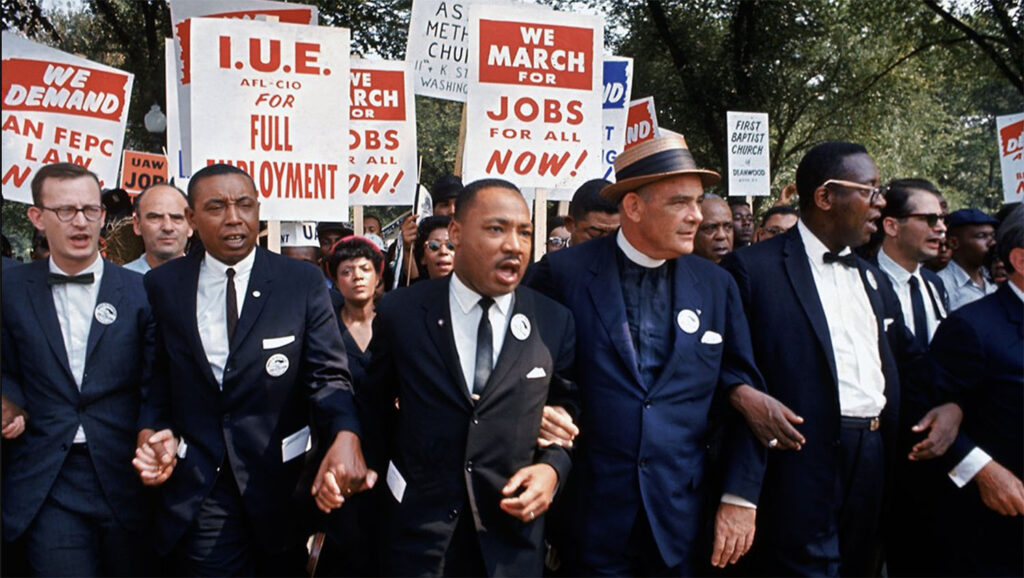By Alexandra Greer, Alliance Intern from Fordham University ‘25
Growing up, I always took the celebration of MLK Day as just a normal day off from elementary and middle school. It wasn’t until high school and my reading King’s Letter from a Birmingham Jail and I Had a Dream speech that I realized the real significance of MLK Day. I will never forget the confusion washing over me when my teacher revealed that she remembered where she was when she heard King’s speech for the first time – live.
You mean people I know had lived in a time where segregation was not only allowed, but enforced? What I believe to be such backward and primitive thinking was a reality not very long ago, and it impeded the lives of people I love and respect. Seeing how recent this history actually is makes me realize how much this country has changed in a short period of time, yet we still have a long way to go. This year I want to reflect on our progress in defending the rights of the marginalized, what more we have to do, and what that means for me.
I feel it’s my responsibility to celebrate the tremendous accomplishments that have been made by the diverse people in the Civil Rights Movement and to recognize that it’s a cause that has no ending. No matter how long ago, the life and legacy of Martin Luther King Jr. has power and relevance today, and it isn’t something that should be lightly considered.
The Civil Rights Movement was a highly progressive endeavor striving to empower the disenfranchised. It is only right that we do not give up on MLK’s vision and continue the work that he began and dream for ourselves. King succeeded in getting voting rights for African Americans. Unfortunately, this remains an on-going battle in order to assure equality under our government.
The NAACP has led great work in these endeavors. It is a national organization that fights for the civil rights of African Americans and systematic equality for all. It provides a space for people of color and their allies to come together and a platform to advocate for one’s rights. Since the death of MLK, the NAACP takes special care to commemorate his work, life and legacy everyday of the year.
This year, the NAACP is focused on “the power to thrive”, meaning that underprivileged and underrepresented voices must continue to be heard and uplifted through policy change and grassroots work. One key aspect of their work is to defend voter rights and to demand policies that make voting easy and accessible for all. The ongoing attempts to prevent communities from voting must be met with tenacious adversity.
With power to easily vote in large numbers, marginalized communities finally have the opportunity to speak up against systemic injustices in a way that will enact change. This will lead to better school systems in poor areas, economic stability, job protection, environmental safety and more. All of these were major protests during the Civil Rights Movement and they’re still issues today, causing major disparities in the American quality of life.
Alongside positive systematic change, Dr. King also hoped for a time where African Americans and other people of color could live freely to achieve their own personal dreams and aspirations.
I often get overwhelmed at the thought that there is more I could do to support these movements. It has taken years to get to the point we’re at now, and it will take many more for this country to get to a place of equity. But there are things I can do on an individual level that can also make a difference.
Whether or not I’m in marches or speaking to my representatives about injustices I see in my community (which are great ways to be an advocate!), I can help my community be a better place by working toward a career and bettering myself. I can exercise the rights and opportunities I do have and use them for good. I can help fulfill the dream of Dr. King by doing just that while honoring the work of those before, with and after me.

